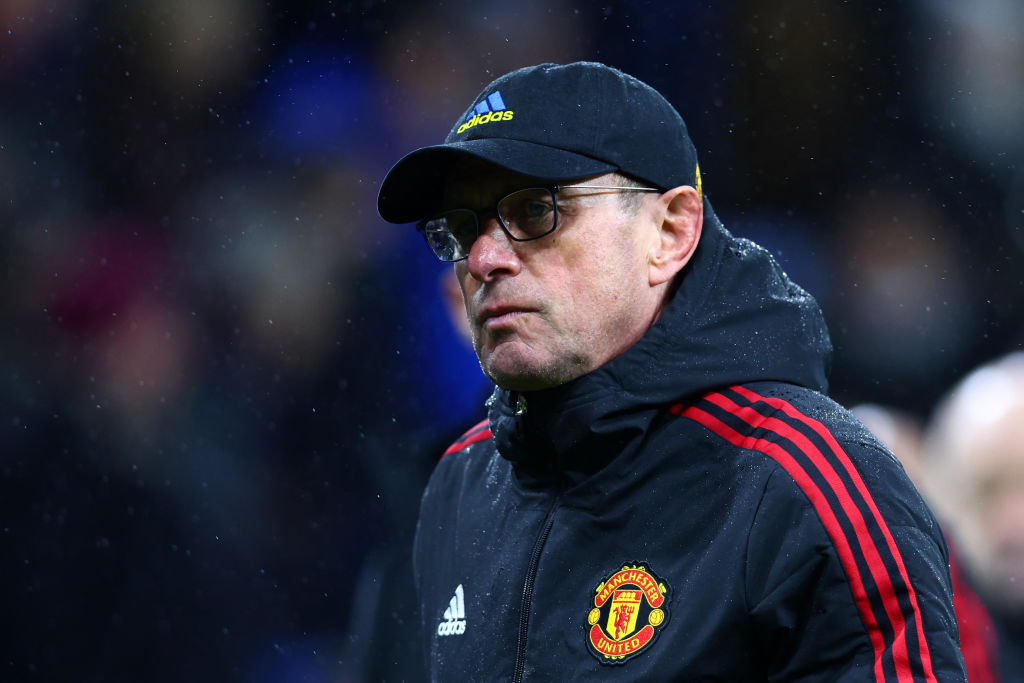
The Austrian FA have moved to clarify reports of an approach for manager , stating that there was no meeting between their sporting director and the Red Devils boss.
Reports emerged in Austria claiming that the FA’s sporting director Peter Schottel had flown to Manchester on Monday for talks with Rangnick.
There is a vacancy to fill after Franco Foda left the post last month after play-off semi-final defeat to Wales.
It does not seem that Rangnick will be the man for the job, though, with the Austrian FA tweeting a denial of the report.
Their official account posted on Wednesday morning: ‘Clarification: There was no meeting between ÖFB sports director Peter Schöttel and Ralf Rangnick, coach of Man Utd.’
When Rangnick was appointed as interim manager at Old Trafford earlier this season he also agreed a two-year stay with the club in a consultancy role beyond the current season.
report that this role would see Rangnick work just six days a month in that position and that he has not been consulted on the hiring of a new manager, set to happen at the end of the season.
How Rangnick will work with the new manager – still likely to be either Mauricio Pochettino or Erik ten Hag – is far from clear and his influence will likely depend on how the new boss wants to work with him.

Rangnick has been firm on the recruitment that is needed at the club and how it absolutely must suit the new manager’s philosophy.
‘Manchester City and Liverpool have been built together and recruited over five or six years — all of them under the premise of how the coaches want to play,’ Rangnick said.
‘I told the board this is what has to happen. Whenever the new head coach is clear, it has to be: how does he want to play and what kind of players do we need for that?
‘This team does not lack technical players, it can do with more physicality. It takes the right decisions and knowing where you want to go: what kind of players, what kind of manager and then, in every transfer window, try to get the best possible.
‘This is not rocket science. It has to be done and, if that happens, maybe in two or three transfer windows the situation could be different.’
, .
, and .
























